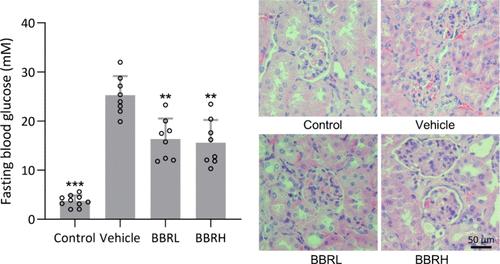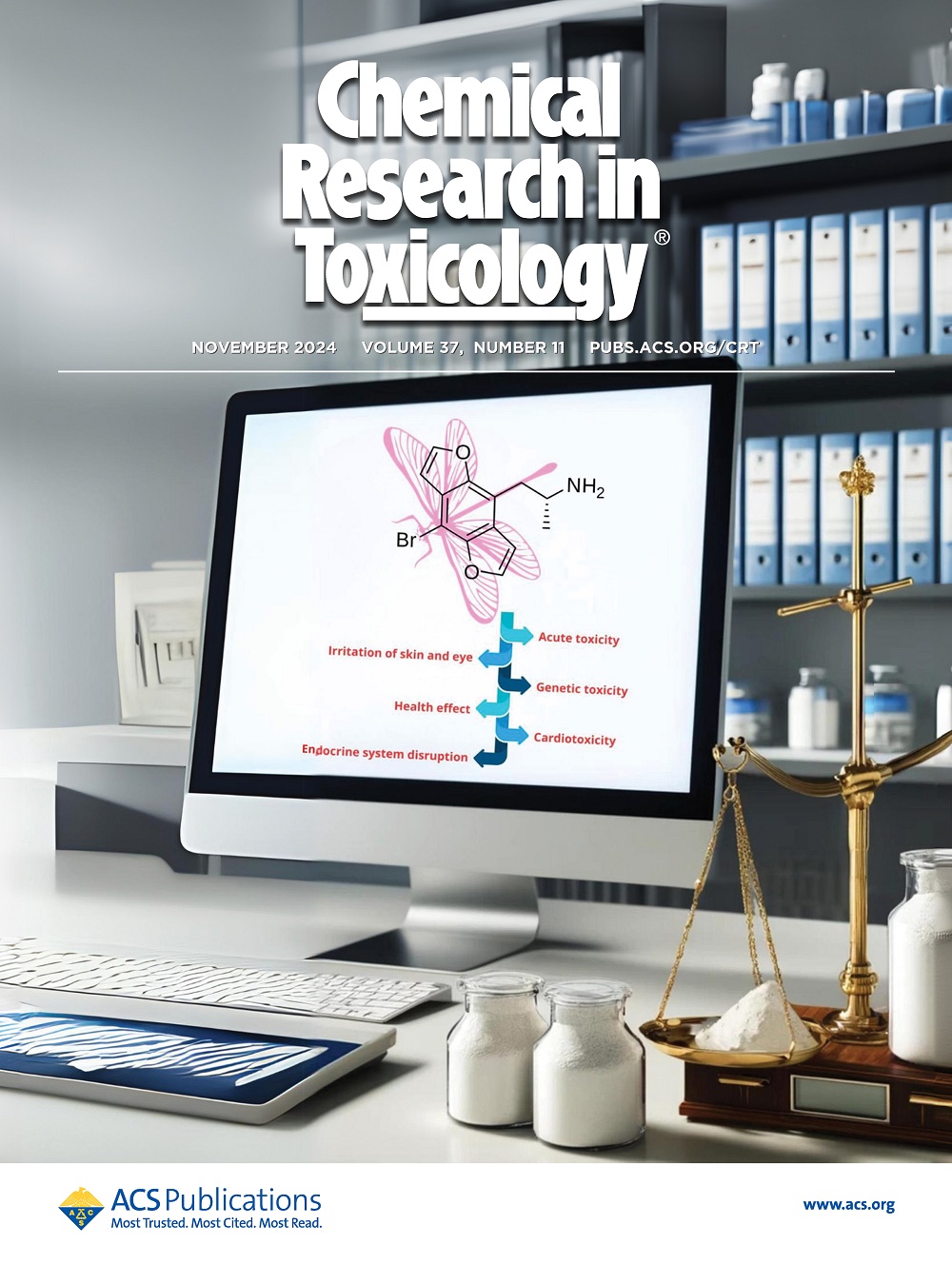Berberine Inhibits KLF4 Promoter Methylation and Ferroptosis to Ameliorate Diabetic Nephropathy in Mice
IF 3.7
3区 医学
Q2 CHEMISTRY, MEDICINAL
引用次数: 0
Abstract
Inflammation, oxidative stress, fibrosis, and ferroptosis play important roles in diabetic nephropathy development. Krüppel-like factor 4 (KLF4) is a transcriptional factor, which regulates multiple cell processes and is involved in diabetic nephropathy. Berberine has various biological activities, including anti-inflammation, antioxidative stress, and antiferroptosis. Berberine has been shown to inhibit diabetic nephropathy, but whether it involves KLF4 and ferroptosis remains unknown. We established a diabetic nephropathy mice model and administered berberine to the mice. The kidney function, renal structure and fibrosis, expression of KLF4 and DNA methylation enzymes, DNA methylation of the KLF4 promoter, mitochondria structure, and expression of oxidative stress and ferroptosis markers were analyzed. Berberine rescued kidney function and renal structure and prevented renal fibrosis in diabetic nephropathy mice. Berberine suppressed the expression of DNMT1 and DNMT2 and upregulated KLF4 expression by preventing KLF4 promoter methylation. Berberine inhibited the expression of oxidative stress and ferroptosis markers, maintained mitochondria structure, and prevented ferroptosis. Berberine ameliorates diabetic nephropathy by inhibiting Klf4 promoter methylation and ferroptosis.

小檗碱能抑制 KLF4 启动子甲基化和铁蛋白沉积,从而改善小鼠的糖尿病肾病
炎症、氧化应激、纤维化和铁蛋白沉积在糖尿病肾病的发展过程中起着重要作用。Krüppel 样因子 4(KLF4)是一种转录因子,可调节多种细胞过程,并参与糖尿病肾病的发生。小檗碱具有多种生物活性,包括抗炎、抗氧化应激和抗凋亡。小檗碱已被证明可抑制糖尿病肾病,但是否涉及 KLF4 和铁突变仍是未知数。我们建立了糖尿病肾病小鼠模型,并给小鼠注射小檗碱。我们分析了小鼠的肾功能、肾脏结构和纤维化、KLF4 和 DNA 甲基化酶的表达、KLF4 启动子的 DNA 甲基化、线粒体结构以及氧化应激和铁氧化标志物的表达。小檗碱能挽救糖尿病肾病小鼠的肾功能和肾结构,防止肾纤维化。小檗碱抑制了 DNMT1 和 DNMT2 的表达,并通过阻止 KLF4 启动子甲基化上调了 KLF4 的表达。小檗碱抑制了氧化应激和铁蛋白沉积标志物的表达,维持了线粒体结构,防止了铁蛋白沉积。小檗碱可通过抑制 Klf4 启动子甲基化和铁蛋白沉积改善糖尿病肾病。
本文章由计算机程序翻译,如有差异,请以英文原文为准。
求助全文
约1分钟内获得全文
求助全文
来源期刊
CiteScore
7.90
自引率
7.30%
发文量
215
审稿时长
3.5 months
期刊介绍:
Chemical Research in Toxicology publishes Articles, Rapid Reports, Chemical Profiles, Reviews, Perspectives, Letters to the Editor, and ToxWatch on a wide range of topics in Toxicology that inform a chemical and molecular understanding and capacity to predict biological outcomes on the basis of structures and processes. The overarching goal of activities reported in the Journal are to provide knowledge and innovative approaches needed to promote intelligent solutions for human safety and ecosystem preservation. The journal emphasizes insight concerning mechanisms of toxicity over phenomenological observations. It upholds rigorous chemical, physical and mathematical standards for characterization and application of modern techniques.

 求助内容:
求助内容: 应助结果提醒方式:
应助结果提醒方式:


